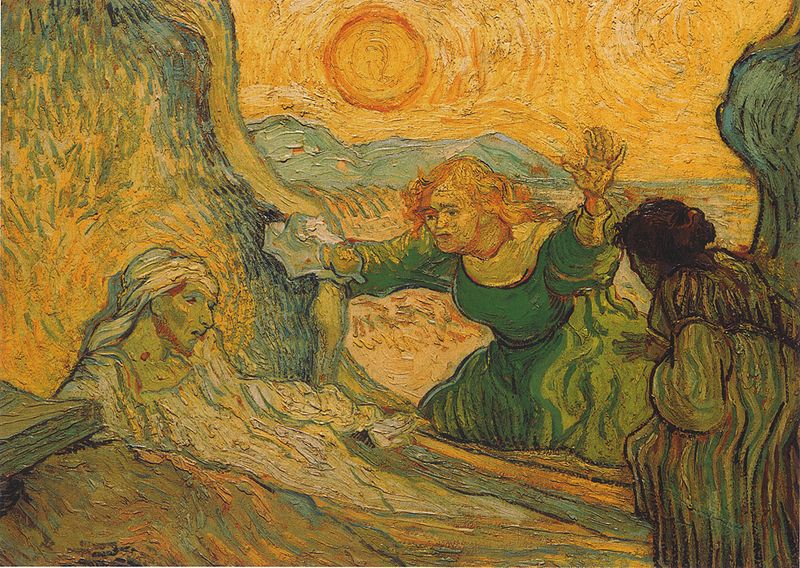We find ourselves in the middle of the first month of the New Year. The air is still fresh, dreams are new, and heartbeats run fast. Maybe, like me, you are starting to slump under the abundance of material on keeping resolutions for the next twelve months. Instead of yet another piece on holding your intentions for the next month, let’s look at an archetype that can be your ally for the rest of your life.
The Zombie, which is only increasing its popularity in films, comic books, and classic novel mash-ups, is an image that hardly needs an introduction. They are dead people returned from the grave, wandering around the land, and groaning after the living. Side-stepping the gory details, the classic Zombie is easy to recognize: Insatiable hunger, a monotonously numbing routine, and a lack of individual choice are three primary characteristics of this pattern. Any act, from voracious spending to pursuing increasing amounts of attention, qualifies as long as what you gain is never enough. This is not consuming for sustenance, but as a temporary fulfillment, stilling any discontent and numbing you to the full experience of life. Where is the ability to make a personal choice if one has glutton-ed themselves to the point of total numbness? That’s why you rarely see a lonely zombie. They’re part of a group, all of them chasing an endless appetite.
is not consuming for sustenance, but as a temporary fulfillment, stilling any discontent and numbing you to the full experience of life. Where is the ability to make a personal choice if one has glutton-ed themselves to the point of total numbness? That’s why you rarely see a lonely zombie. They’re part of a group, all of them chasing an endless appetite.
Zombies move in groups, lack a personal identity, and are attracted by that which is not like them, namely someone alive. They move together with a singular goal to consume and internalize some part of a person who, through their life, possess a personal share of destiny. Unfortunately, once a living person contacts a zombie they become part of the homogeneous group lacking independent animation and destiny. Instead of claiming their own destiny, zombies are attracted to someone else’s and consume what they can until everyone is in the half-life existence.

The Raising of Lazarus – Vincent Van Gogh
It is the empowered Zombie that wakes up and moves toward her passions and the life that has been calling her. Lazarus in the Gospel of John is a useful illustration to this point. He had been dead and in a cave for several days before Jesus finally rolled into town. After speaking with the deceased’s grieving family members, Jesus stood outside the cave and called to the dead. (This is the voice of destiny urging the zombie to stir from his half-life.) A few moments later Lazarus woke, walked out into the daylight and stood while his face, hands, and feet were unwrapped from the constraining funerary garments.
For you and I, we can detect the presence of the Zombie when we find ourselves deep in our caves, consuming all that spews out of our electric displays, wondering at those who seem to have a slice of their own destiny. We may dream at the possibilities of fame and glazed camera lights instead of making things happen for ourselves. There is a voice outside in the sunlight calling to us every moment to wake up and come out into the world. First, we have to shake off the bindings that block our walking and our talking. We have to struggle to move and at times even to hear the voice itself. But we can walk out into the brightness of the life that we were born to live and follow each our own destinies. What better time to resolve our own longings than right now?
References:
Film & Television: 28 Days Later; The Night of the Living Dead; Shaun of the Dead; Office Space; Clockwatchers; Fido; Zombieland; the Borg in Star Trek
Fiction: Pride and Prejudice and Zombies by Jane Austen and Seth Grahame-Smith; the Inferi in Harry Potter and the Half-Blood Prince by J. K. Rowling; 1984 by George Orwell; Brave New World by Aldous Huxley
Religion/Myth: Lazarus in The New Testament (John, Chapter 11)
Related Articles:
My Zombie, Myself: Why Modern Life Feels Rather Undead (New York Times)






I quite like this take on zombies. A question what happens to zombies over time? Do they just continue to eat live humans or do they start to devour each other? I follow trends in the human psyche by watching what kinds of films, books/stories are coming out and are popular. I have noticed the zombie trend growing starting a few years ago. The story the comes to mind is that of the king who is cursed by a crone for chopping down the sacred tree or heart wood of his kingdom mainly because of his hubris-I’m king and I can do it. He is cursed to have an insatiable hunger and goes about devouring everything including himself. In the end nothing is left except emptiness. So I see the zombies as manifesting our insatiable devouring side as we consume the planet. That’s why I ask about zombies over time. They are usually dealt with in movies/stories but what if their/our insatiable emptiness goes on and on?
hey mike, I’ve been watching “In the flesh” it’s a bbc tv show about people who used to be zombies, but were medically ‘saved’. It’s very interesting, check it out.
Hey Mike, thanks for the comment. In answer your question: I’m with you regarding the endless consumption quality of the zombie, though I can’t help but see the zombie as a “larval” stage of the psyche. I won’t say that anyone is fated to stay forever a zombie and that’s the greatest potential they’ll realize. It’s more as a function of the fearful/unconscious dynamic that’s normal in a human life and particularly prevalent in our present culture. There’s even some overlap to the Addict.
We’re called “consumers” whether it’s television, information, technology, status, pharmaceuticals and other chemicals, relationships, etc. The zombie consumes brains, or flesh, basically life itself. He lacks willpower and awareness of an internal direction and so follows whatever external substance seem to have that direction. He forgets that he is still alive. If the zombie were in fact dead there would be no animation whatsoever.
So, in this larval stage, maybe something scares the zombie. Perhaps she doesn’t want to take the next step forward in her life. She’d tell us if she could that she doesn’t know what to do. So she goes underground, flips on the television and opens a bag of potato chips. Or she chases the lifestyle that would grant her the “authentic self.” If we return to the Lazarus example in the article we can say that there’s something always calling us to our destiny, our life, whether we label it with a particular religious affiliation or call it something else. But we always have some sense of where to pursue our life even if we don’t want to acknowledge it.
I don’t see anything inherent within the archetype of the zombie fated to stay forever unconscious and dead. One can choose to stay there, but that is a continually unfolding choice made constantly to stay unconscious. Again, if they were dead, they couldn’t choose, let alone be have the option to change direction. It’s the voice offering choice again and again. To say it another way, I think the archetype can engage in those times when we find ourselves in a “rut”. We can stay in that path or we can go about climbing out of it.
Now something that’s hopefully more practical: The most effective way of counteracting this dynamic on the planetary scale is to become maximally aware of ourselves, including those areas of our lives where we are apt to sit in our cave rather than engaging in life. (They call them “Man Caves” for a reason, now that I think of it.) The world’s only going to wake up when we wake up individually. Insatiable emptiness can’t go on forever. Nothing does.
Excellent post. Thought-provoking and right on target imo. Thanks!